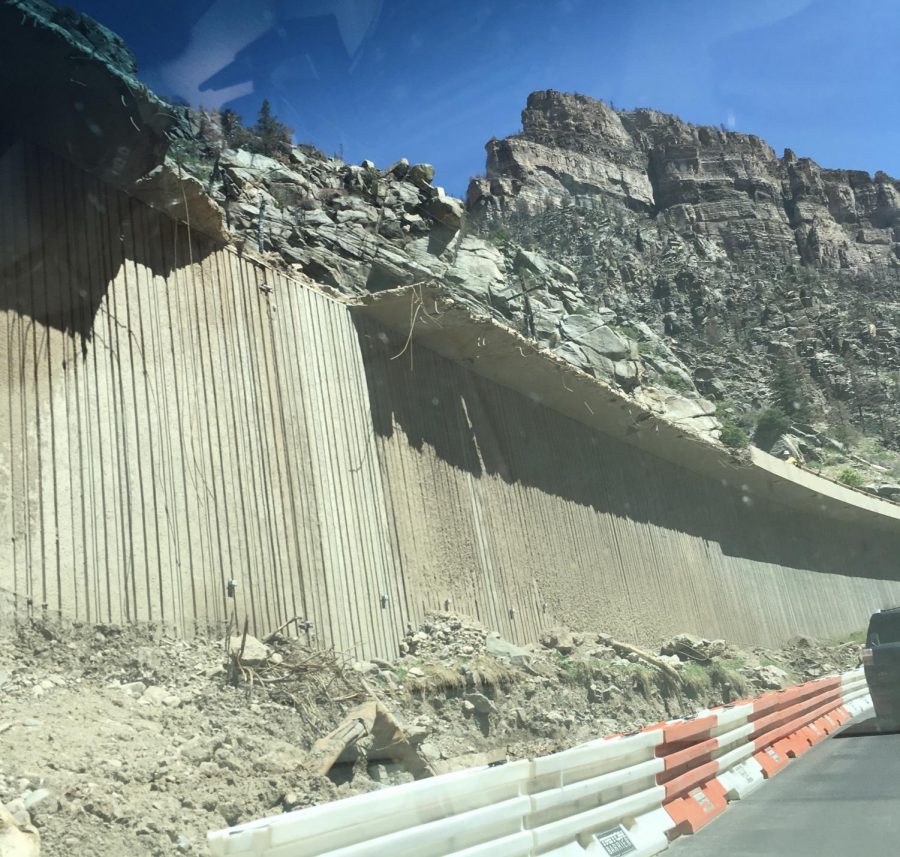Historic Bipartisan Infrastructure Bill to Fund Colorado Projects
September 17, 2021
Driving to Denver from Grand Junction on I-70 right now is a study in highway construction. Men in orange suits have been standing in the hot sun directing vehicles through the mudslide destruction in Glenwood Canyon for over a week, and the day that there are no traffic cones on Vail Pass is the day I believe in miracles. State and local taxes generally fund these projects, but on August 10th the federal government elected to pick up the tab for Colorado and the rest of the country when the US Senate voted to approve a historically large $1 trillion dollar infrastructure bill. This legislation is known as the Bipartisan Infrastructure Bill, as it was passed 69-30 in the evenly divided Senate, and it allocates money for all 50 states. The Centennial State is planning on taking on several major projects with this new funding.
Colorado Senator Michael Bennet told Avery Lill at Colorado Matters that the Bipartisan Infrastructure Bill contains more than $2 billion for Colorado transportation alone. He emphasized that the recent bill is “…a historic, once in a lifetime investment that we’re making in roads and bridges throughout the country and Colorado will benefit from that…there’s going to be an awful lot of investment throughout our state to make permanent improvements to better protect our drivers.”
Bennet predicted that the allocated money will be used to address the dangers of and damage caused by recent mudslides in Glenwood Canyon, news that is certainly a relief to Western Slope residents and small businesses. Many Fruita Monument High School students have expressed frustration about the canyon closures, and all are in agreement that taking either of the six-hour detours south through Gunnison or north through Steamboat is “ridiculous and unacceptable and way too expensive.” They cite high gas prices and lost time as the largest annoyances.
The complaints of would-be tourists are nothing compared to the hardships faced by Western Slope businesses and trucking companies that rely on the I-70 corridor. Sarah Mulholland at the Durango Herald spoke to the owner of Bin 707 and Taco Party in Grand Junction, Josh Nirenberg. He described the chaos the canyon closure is creating: “We’re still able to get some trucks, but we don’t know what time of day they’re going to arrive. In some cases, we don’t know what days of the week they are going to arrive.” This uncertainty means that he doesn’t have ingredients when he needs them; Nirenberg has run out of tortillas on multiple occasions over the past days.
CDOT reports that 4,900 trucks travel on I-70 past Exit 205 for Silverthorne every day, most of which carry essential supplies to businesses in Colorado and surrounding states. All of these businesses are facing the same challenges as Nirenberg.
While transportation is perhaps the most pressing issue for Coloradans at the moment, the Bipartisan Infrastructure Bill contains funds for more than highways and bridges. The White House issued a fact sheet that promises $65 billion for broadband internet expansion across the country, specifically in rural areas that lack high speed internet. Senator Bennet told Colorado Matters that $100 million of the allocated broadband money will go to Colorado. “If you’ve got kids in one community that don’t have access to broadband and kids in another that do, that’s tantamount to accepting a world where some kids have access to textbooks and other kids don’t,” Bennet stressed. Senators hope that this legislation can repair these disparities across the country.
Aside from the previously discussed money for roads, bridges, and broadband, the Bipartisan Bill includes $73 billion for electric grid and power infrastructure; $66 billion for passenger and freight rail; $55 billion for water systems and infrastructure; $50 billion for Western water storage; $39 billion for public transit; $25 billion for airports; $21 billion for environmental remediation projects; $17 billion for ports and waterways; and $15 billion for electric vehicles, according to Kelsey Snell at NPR. Portions of all of this money will go to Colorado, allowing the state to take action to preserve water in the Colorado River and install electric charging stations across the state.
This money attempts to address rural-urban divides, climate change, water disputes and more, and our communities could be very different after all of the funds are spent. America, and Colorado, can be dramatically changed with $1 trillion.

